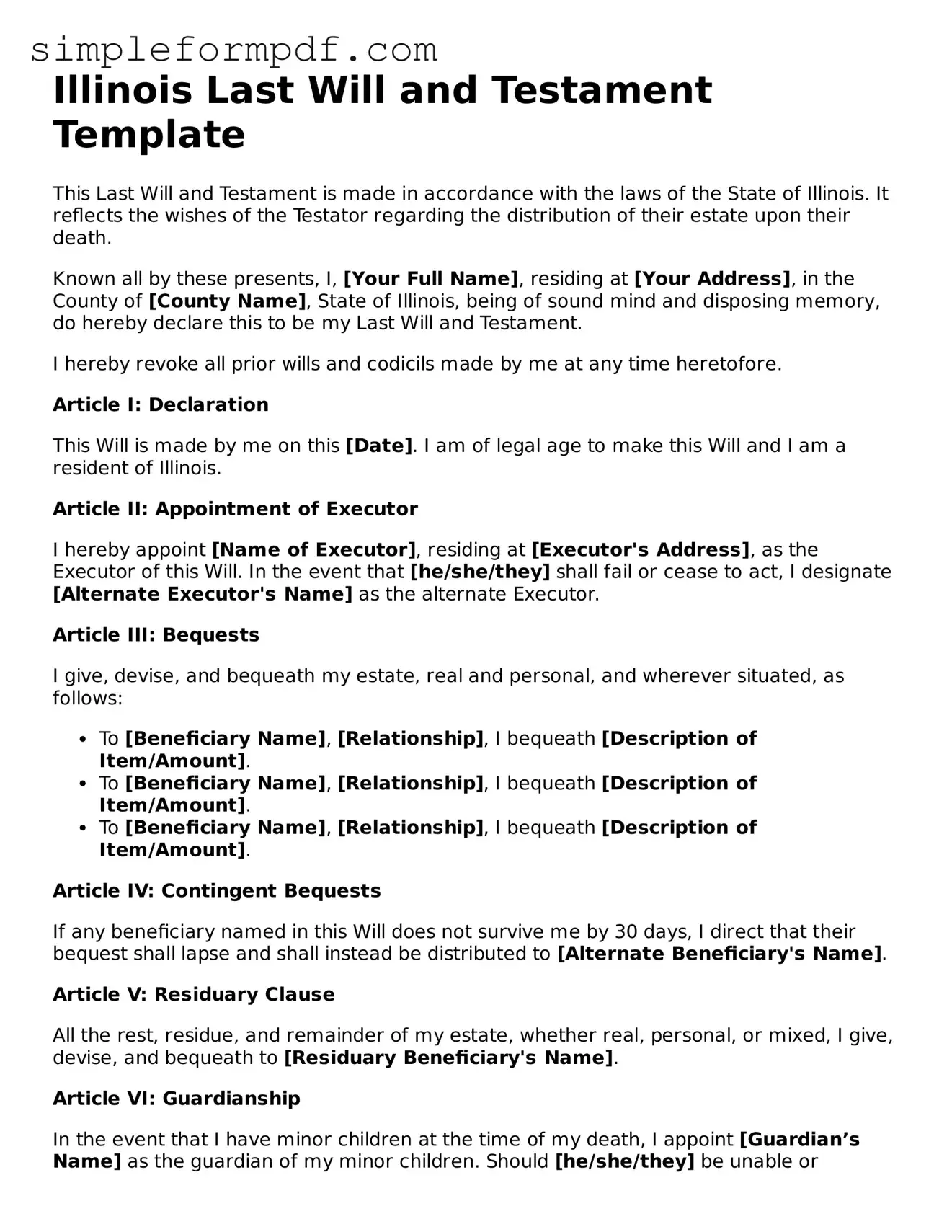Illinois Last Will and Testament Template
This Last Will and Testament is made in accordance with the laws of the State of Illinois. It reflects the wishes of the Testator regarding the distribution of their estate upon their death.
Known all by these presents, I, [Your Full Name], residing at [Your Address], in the County of [County Name], State of Illinois, being of sound mind and disposing memory, do hereby declare this to be my Last Will and Testament.
I hereby revoke all prior wills and codicils made by me at any time heretofore.
Article I: Declaration
This Will is made by me on this [Date]. I am of legal age to make this Will and I am a resident of Illinois.
Article II: Appointment of Executor
I hereby appoint [Name of Executor], residing at [Executor's Address], as the Executor of this Will. In the event that [he/she/they] shall fail or cease to act, I designate [Alternate Executor's Name] as the alternate Executor.
Article III: Bequests
I give, devise, and bequeath my estate, real and personal, and wherever situated, as follows:
- To [Beneficiary Name], [Relationship], I bequeath [Description of Item/Amount].
- To [Beneficiary Name], [Relationship], I bequeath [Description of Item/Amount].
- To [Beneficiary Name], [Relationship], I bequeath [Description of Item/Amount].
Article IV: Contingent Bequests
If any beneficiary named in this Will does not survive me by 30 days, I direct that their bequest shall lapse and shall instead be distributed to [Alternate Beneficiary's Name].
Article V: Residuary Clause
All the rest, residue, and remainder of my estate, whether real, personal, or mixed, I give, devise, and bequeath to [Residuary Beneficiary's Name].
Article VI: Guardianship
In the event that I have minor children at the time of my death, I appoint [Guardian’s Name] as the guardian of my minor children. Should [he/she/they] be unable or unwilling to serve, I appoint [Alternate Guardian's Name].
Article VII: Signatures
In witness whereof, I have hereunto subscribed my name on this [Date].
__________________________
[Your Full Name], Testator
Witnesses
We, the undersigned witnesses, hereby certify that the above-named Testator, [Your Full Name], signed this Will in our presence and declared it to be their Last Will and Testament.
- __________________________
[Witness 1 Name] (Signature)
- __________________________
[Witness 2 Name] (Signature)
Dated: [Date]

